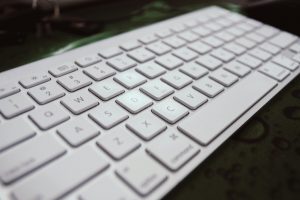AI Legal Assistants: Affordable Help or Unauthorized Practice?
In today’s fast-paced world, the legal profession is constantly evolving and adapting to new technologies. One of the latest innovations in the legal field is the use of AI (Artificial Intelligence) legal assistants. These AI assistants are designed to help lawyers and law firms with various tasks, from legal research and contract drafting to document review and client communication. While these AI legal assistants promise to make legal services more efficient and affordable, there is also a growing concern about the potential ethical and regulatory issues surrounding their use. In this article, we will explore the topic of AI legal assistants and whether they are truly affordable help or unauthorized practice.
The Rise of AI Legal Assistants
AI legal assistants are a product of the technological revolution that has been taking place in the legal industry in recent years. With the vast amount of legal information available online and the advancements in natural language processing, it was only a matter of time before AI was introduced to assist lawyers in their day-to-day tasks.
These AI legal assistants use algorithms and machine learning to analyze and interpret legal data and provide relevant information to lawyers. They can help lawyers with tasks such as legal research, document review, and contract drafting, freeing up their time to focus on more complex legal work. In addition, these assistants can also assist with administrative tasks like scheduling meetings and managing client communications.
The Promise of Affordability
One of the main selling points of AI legal assistants is their affordability. With the ability to handle routine tasks, they can significantly reduce the amount of time and resources spent on legal work. This, in turn, can result in lower legal fees for clients, making legal services more affordable and accessible to the general public.
In addition, these AI assistants can also provide lawyers with more accurate and comprehensive results, eliminating the need for multiple researchers and reducing the risk of errors in legal work. This can lead to a more cost-effective and efficient legal process, making it more affordable for clients to seek legal help when needed.
Unauthorized Practice Concerns
While the use of AI legal assistants has many potential benefits, there are also valid concerns about their use, particularly in terms of unauthorized practice of law (UPL). In most jurisdictions, practicing law without a license is strictly prohibited, and lawyers are responsible for ensuring that their assistants comply with these rules.
Since AI legal assistants do not possess licenses, there is a concern that they may be performing tasks that constitute the practice of law, such as providing legal advice or drafting legal documents. This raises questions about whether the use of AI legal assistants is deemed UPL and whether it is ethical for lawyers to rely on these assistants for legal work.
The Ethics of AI Legal Assistants
One of the core ethics issues surrounding AI legal assistants is the responsibility of lawyers to provide competent legal services. While these assistants can perform certain tasks efficiently, they do not possess the knowledge, experience, and judgment of a human lawyer. This can lead to errors and omissions in legal work, potentially putting clients at risk.
In addition, the use of AI legal assistants can also raise concerns about confidentiality and data security. These assistants have access to sensitive client information, and there is a risk of that information being compromised or shared without consent. This is particularly concerning in the legal field, where confidentiality is a crucial element of the lawyer-client relationship.
The Verdict: AI Legal Assistants, Help or Harm?
While AI legal assistants have the potential to provide affordable help to lawyers and their clients, there are also valid concerns about their use. The ethical and regulatory issues surrounding their use must be carefully addressed and monitored to ensure the protection of clients’ interests. As technology continues to advance, it is crucial for the legal industry to stay vigilant and adapt to these changes responsibly.
In conclusion, AI legal assistants may be a valuable tool for lawyers, but they must be used carefully and ethically. They should not be viewed as a complete replacement for human lawyers, but rather as a supplement to their work. By being transparent with clients about the use of AI assistants and ensuring compliance with ethical and regulatory standards, lawyers can harness the benefits of AI technology while safeguarding the integrity of the legal profession.










